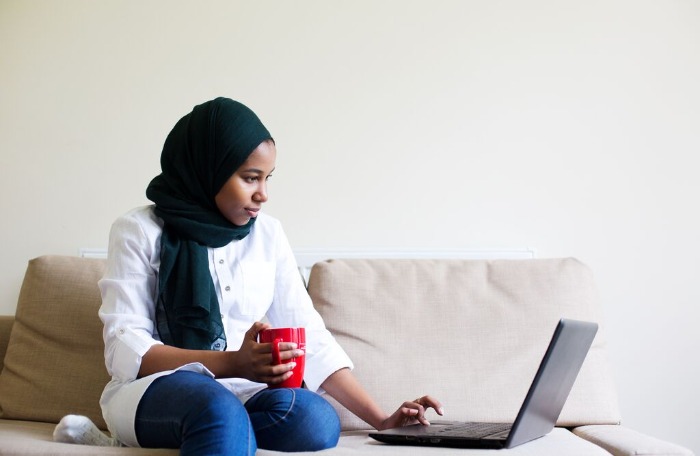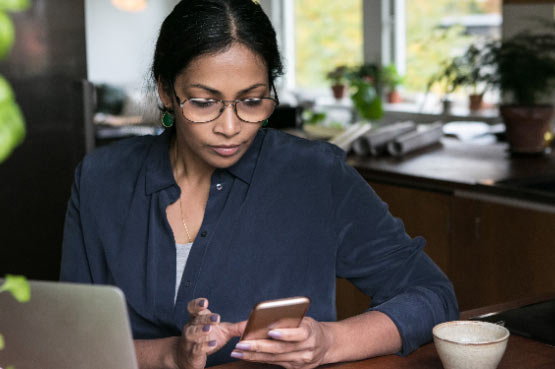How to deal with feeling lonely
We all feel lonely from time to time, and different things can make us feel this way. But if you feel lonely for a long time, it can affect your health. Here, I explore what you can do to deal with loneliness and how to prevent it from becoming a long-term problem.

Why do I feel lonely?
Feeling lonely is a perfectly normal and natural human emotion. After all, we’re designed to be social creatures. Feeling lonely could be a sign that we’re not getting the level of social interaction that we need.
But loneliness will look and feel different to different people. For example, some people are perfectly happy to not have many social contacts, and to be in their own company for long periods of time. They may be alone, but they aren’t lonely.
Others may be surrounded by people but still feel lonely. This can happen if you find it hard to relate to the people around you, or feel like they don’t understand or care for you.
What makes you feel lonely is very personal to you. And it can depend on your own situation and need for social contact.
Who gets lonely?
Loneliness affects people of all ages, backgrounds, and circumstances. Certain groups of people may be more likely to feel lonely. This includes single parents, teenagers, older people, and people with a disability or health problem.
There are also certain circumstances that can trigger loneliness. These include:
- losing a loved one
- a relationship or friendship ending
- starting university or a new job
- retiring
- moving to a new area
- going through something that makes you feel different to your peers – or that they can’t relate to
- holidays such as Christmas and New Year
Although loneliness isn’t a mental health problem, it’s closely linked to your mental wellbeing. Having a mental health problem might make it harder to be around other people, and this can make you feel lonely. But feeling lonely can also put you at greater risk of certain mental health problems – including depression, anxiety, and stress. Long-term loneliness has also been linked to a range of physical health concerns, such as type 2 diabetes and dementia.
Feeling lonely is nothing to feel embarrassed or ashamed about. We’re all likely to have some points in our lives when we feel lonely, and that’s OK. But it’s good to acknowledge it. It’s also good to know there are ways to combat loneliness and feel better.
How do you stop feeling lonely?
Here are some ideas you could try to help deal with feelings of loneliness. Different things will work for different people – it’s about working out what level of social contact works for you. Just take it one step at a time and try not to put too much pressure on yourself.
- Try new interests and activities. Finding a new hobby or activity that interests you can boost your mood and keep your mind busy. It might not even be about meeting people straight away – but eventually, if you find a hobby you enjoy, it could help you meet like-minded people.
- Build connections. This can take time but start small. It might mean just stopping to say hello to neighbours or having a coffee with a colleague. You could join a group or community project, or even an online group, community, or forum. Even if you don’t actively participate at first, it can help to give you that sense of belonging.
- Work on existing relationships. If you think your relationships with friends, family, or partners could be making you feel lonely, focus on strengthening these. Talk to them about how you feel – you might feel much better after sharing your thoughts.
- Don’t compare yourselves to others. Sometimes, looking at other people’s lives on social media can make you feel inadequate and lonelier. Remember that many people only share the good things in their lives on social media. It might help to come off social media platforms or mute certain accounts for a while. Or consider ways to maintain a healthy relationship with social media.
- Take care of your mental health. Remember how closely linked loneliness and mental health are. If you’re feeling happy and confident in yourself, this may help to reduce feelings of loneliness. Make sure you’re sleeping and eating well. And try to make time to get active and do the things you enjoy.
- Seek support when you need it. There are many organisations that provide peer support. These include ‘befriender services’ and online communities. Details of some of these are listed below. If loneliness is affecting your mental health, you may also want to consider talking therapies or seek help from your doctor.
Further support
If you’re worried about your mental health, our direct access service aims to provide you with the advice, support and treatment you need as quickly as possible. You’ll be able to get mental health advice and support usually without the need for a GP referral. Learn more today.
-
Sources Sources
- About loneliness. Mind. mind.org.uk, published June 2023
- Our guide to loneliness. Marmalade Trust. marmaladetrust.org, accessed February 2025
- Loneliness. Young Minds. youngminds.org.uk, accessed February 2025
- How can I manage loneliness? Mind. mind.org.uk, published June 2023
- Health effects of social isolation and loneliness. US Centers for Disease Control. cdc.gov, published May 2024
- Guarnera J, Yuen E, Macpherson H. The Impact of Loneliness and Social Isolation on Cognitive Aging: A Narrative Review. J Alzheimers Dis Rep 2023;7:699-714. DOI: 10.3233/ADR-230011
- Henriksen RE, Nilsen RM, Strandberg RB. Loneliness increases the risk of type 2 diabetes: a 20 year follow-up - results from the HUNT study. Diabetologia 2023;66:82-92. DOI: 10.1007/s00125-022-05791-6
- Coping with loneliness and isolation. Health Service Executive Ireland. hse.ie, reviewed September 2022
- I feel lonely. What can I do? Campaign to End Loneliness. campaigntoendloneliness.org, accessed February 2025
About our health information
At Bupa we produce a wealth of free health information for you and your family. This is because we believe that trustworthy information is essential in helping you make better decisions about your health and wellbeing.
Our information has been awarded the PIF TICK for trustworthy health information. It also follows the principles of the The Information Standard.

More mental health and wellbeing articles
Did you find our advice helpful?
We’d love to hear what you think. Our short survey takes just a few minutes to complete and helps us to keep improving our healthy lifestyle articles.
Legal disclaimer
This information was published by Bupa's Health Content Team and is based on reputable sources of medical evidence. It has been reviewed by appropriate medical or clinical professionals and deemed accurate on the date of review. Photos are only for illustrative purposes and do not reflect every presentation of a condition.
Any information about a treatment or procedure is generic, and does not necessarily describe that treatment or procedure as delivered by Bupa or its associated providers.
The information contained on this page and in any third party websites referred to on this page is not intended nor implied to be a substitute for professional medical advice nor is it intended to be for medical diagnosis or treatment. Third party websites are not owned or controlled by Bupa and any individual may be able to access and post messages on them. Bupa is not responsible for the content or availability of these third party websites. We do not accept advertising on this page.







